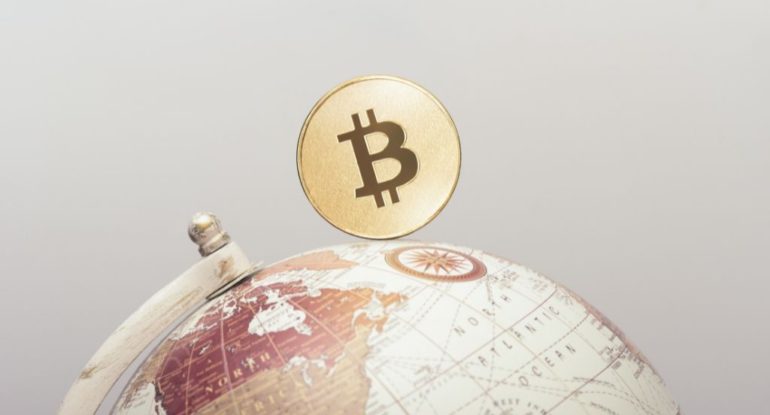How Blockchain Can Change The Course Of International Trade

Technological advancements have shaped the framework of trade and commerce since the dawn of humanity. The development of steam engines ushered in an era of mechanical industry, while the discovery of electricity stimulated mass production. From information to communication, technology has been employed to simplify life. Due to its potential applications across many industries, blockchain technology has been hailed by many as the next big thing.
Blockchain technology is a sort of distributed ledger technology that is mostly used to record transactions.
Blockchain has an impact
Statista claims that blockchain technology makes maintaining data records simpler, more open, and even more secure. Blockchain provides time-based information on transactions between private persons, business entities, supplier networks, or even an international supply chain, mostly due to its resistance to manipulation.
Another widely held misconception is that blockchain technology solely applies to Bitcoin (BTC). That idea, however, could hardly be more false. Although the technology and Bitcoin first appeared in 2008, their current use cases go far beyond cryptocurrencies. Its applications span practically every aspect of the global economy, including those directly or indirectly related to international trade, finance, e-commerce, food safety, voting processes, and supply-chain management.
International trade has a particularly complicated value chain. Even if its transactions involve several parties, blockchain technology benefits its other components, including trade financing, customs administration, transportation, and logistics.
The most widespread applications of blockchain technology, according to Statista, are cross-border payments and settlements, particularly in light of the numerous prior attempts to automate trade transactions. The potential of blockchain to improve trade process efficiency is currently being investigated. The Komodo Smart Chain’s blockchain project Open Food Chain, for instance, aims to increase food security.
Chief Technology Officer of the technology company and open source workshop Komodo, Kadan Stadelmann, told:
“The main benefit of blockchain is immutability, which prevents data from being changed or removed once it has been recorded in the ledger. This presents an opportunity for greater openness in several important industries related to international trade.”
According to Stadelmann, technology makes it possible to trace items from their place of origin—a farm in another country—to the consumer’s neighborhood store. He claimed that by addressing problems like food contamination outbreaks, which affect 600 million people worldwide—nearly 1 in 10—and result in 420,000 deaths annually, the WHO estimates this can help improve food security worldwide.
Blockchain has the potential to simplify the intricate documentation procedures that are common in international trade. According to Zen Young, CEO of Web3Auth, a non-custodial web authentication infrastructure: Bills of lading recorded through blockchain eliminate the need for such processes and the possibility of duplicate spending. Traditional clearance processes for digitized documents can take up to 120 days to complete.
He said that blockchain commissions are lower and without maximum restrictions, which is especially useful for exporting goods. Transfer payments and transactions are also speedier and less expensive than they are now available through the SWIFT network.
Additionally, Zen said that using non-paper documents that are legally enforceable and can be digitally verified, these aspects will aid in the elimination of fraud. Another example is IBM and Maersk developing a blockchain-based solution to modernize the world’s shipping sector. The TradeLens project aims to completely digitalize the shipping process and implement it on a blockchain.
The ultimate objective is to develop a supply chain that is more transparent and productive, allowing for faster delivery times while spending less money. Over 150 organizations, including significant port operators, shipping corporations, and logistics providers, have successfully joined the project.
TradeLens, according to IBM, has handled over 150 million shipping events while saving users an estimated 20% on document expenditures. Additionally, the platform has reduced the time it takes to send goods by 40%.
It is just a matter of time before blockchain’s promise is fully realized in the realm of international trade as it continues to gain traction across several industries. Blockchain has the potential to completely change how things are moved around the world by streamlining operations and cutting prices.
However, despite its potential, the use of blockchain technology in global trade has certain drawbacks.
Drawbacks of blockchain
The main drawback of using blockchain is that it frequently results in high transaction fees. Blockchain technology is highly expensive, for instance, when it comes to cross-border payments. This is because blockchain transactions frequently include many middlemen, increasing prices. Additionally, the time required to settle a blockchain transaction can significantly raise the overall cost.
The inability of blockchain to scale is another drawback. Because every node must confirm every block in a blockchain on the network, the system frequently stutters when processing high numbers of transactions.
Delays in the processing of transactions are a significant problem in the realm of international trade as a result of this.
Also, read – GE Transportation becomes a part of Global Blockchain Trade Association
Conclusion
Lastly, Deloitte claims that because blockchain technology is still in its infancy, it has several risks and uncertainties. For instance, there is always a chance that a serious vulnerability in the framework for scalability and privacy will be found, which could impact the operation’s financial side.
Additionally, there is a chance that dishonest people could perpetrate fraud or theft by taking advantage of system flaws. Those who want to employ blockchain technology in international trade must carefully assess these concerns. Despite these drawbacks, it’s vital to remember that blockchain technology is still in its infancy. Many of these problems will probably be addressed when technology develops and is solved.
The overall cost of using the system will probably go down as more businesses start implementing blockchain technology. As a result, firms trying to streamline their global trading processes may find blockchain a more appealing alternative. Finally, blockchain technology can completely change how things are traded globally. Blockchain can potentially increase the efficiency and transparency of international trade by streamlining procedures and lowering costs.




























































